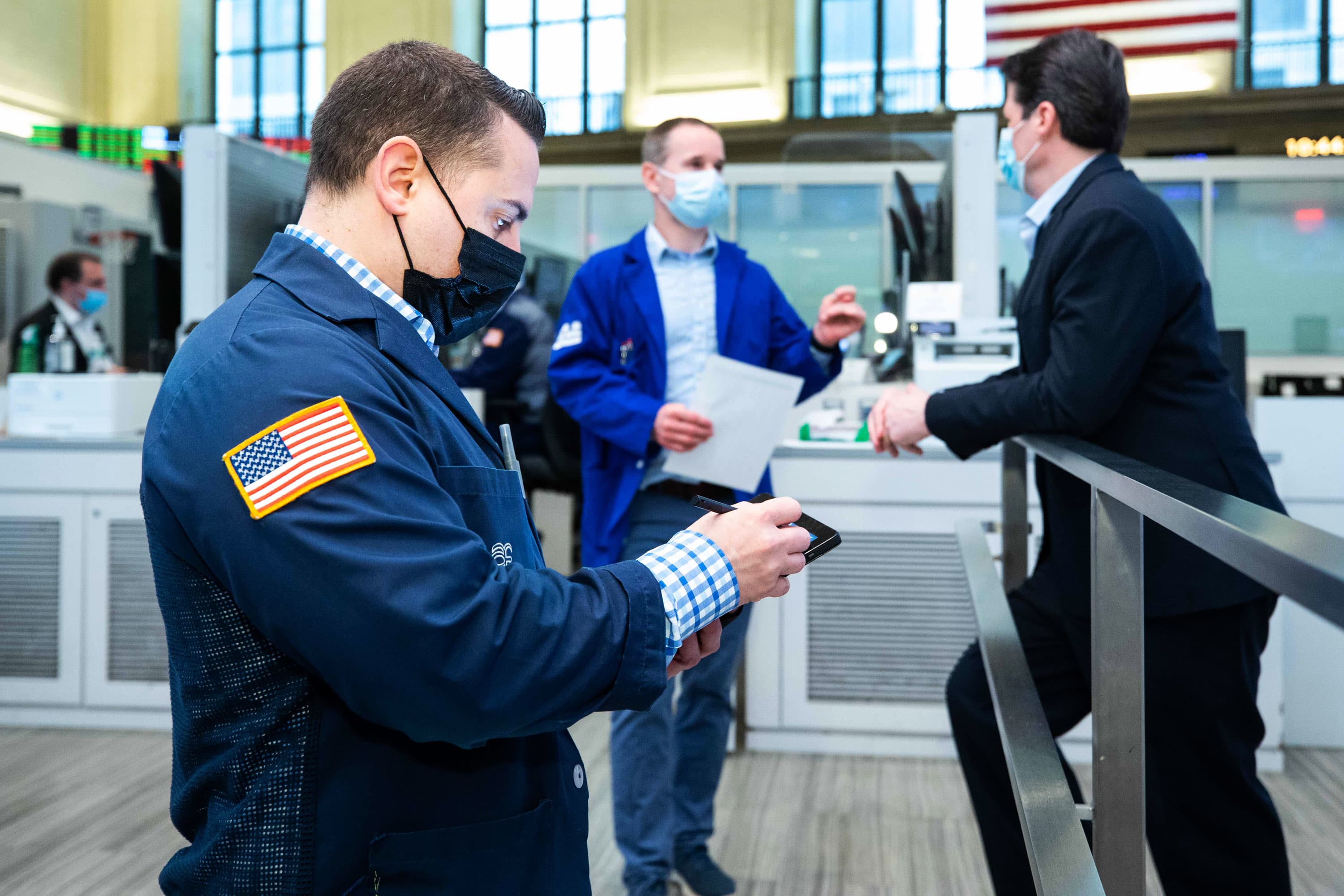
U.S. stocks traded mixed on Tuesday after a March inflation report turned out not as bad as some traders feared, but the impact of a halt to the rollout of Johnson & Johnson vaccines kept optimism in check.
The Dow Jones Industrial Average fell 170 points, or 0.5%, while the S&P 500 traded flat. The Nasdaq Composite, the relative outperformer, gained 0.65% as Apple, Amazon and Netflix all gained about 1%.
Reopening trades remained under pressure after the U.S. Food and Drug Administration said it’s recommending a pause in the Johnson & Johnson Covid-19 vaccine after reported cases of blood clotting.
“We are recommending a pause in the use of this vaccine out of an abundance of caution,” the FDA said in a statement on Twitter. J&J shares fell 2.5% at the opening of trading in New York.
There have been six reported cases of a rare and severe type of blood clot after receiving the J&J vaccine, the FDA said. More than 6.8 million doses of the J&J vaccine have been administered in the U.S. The agency is calling for a pause in the vaccine until Centers for Disease Control and Prevention concludes its investigation into these cases.
“Until that process is complete, we are recommending this pause,” the FDA said. “This is important to ensure that the health care provider community is aware of the potential for these adverse events and can plan due to the unique treatment required with this type of blood clot.”
Shares that stand to be hurt the most if the rapid vaccine rollout in the U.S. slows also fell.
Carnival Corp shares pulled back 1.1% and American Airlines also lost more than 2%. Shares of Moderna, which makes another coronavirus vaccine, jumped 5.4% following the J&J news, which was reported first by The New York Times.
“I don’t think there’s going to be a huge reaction in the market beyond the knee-jerk reaction we’re getting here right now,” said Mike Wilson, chief U.S. equity strategist for Morgan Stanley, on CNBC’s “Squawk Box.” “We’re optimistic, very optimistic that we’re going to be reopened fully in the second half of this year.”
Traders on the New York Stock Exchange.
Source: NYSEa
The consumer price index, one of Wall Street’s most-popular inflation gauges, rose 0.6% in March and increased 2.6% from the same period a year ago. Economists polled by Dow Jones were projecting the headline index to rise by 0.5% month over month and 2.5% year over year.
Core CPI, which excludes volatile food and energy costs, increased 0.3% monthly and 1.6% year over year.
Government officials, including Federal Reserve Chair Jerome Powell on Sunday and Biden administration economists on Monday, stressed that while they expect a jump in inflation in the months ahead, the change could prove temporary due to comparisons with last year’s pandemic lockdowns and extra consumer spending from stimulus checks and pent-up demand.
Private sector strategists and economists also said that the reading may not be a true gauge of rising prices.
“We will soon see impact from the 2020 Covid-19 pandemic on the economic data. A particular focus area will be inflation. Our message is simple: Don’t fall prey to this head fake,” Putnam Investments said in a note on Monday.
Fed officials said they are willing to let inflation run hot for a period of time without changing their accommodative policy stance, including asset purchases and a benchmark interest near zero.
The bond market was also subdued on Monday, with the 10-year Treasury yield edging lower to just above 1.66%. Yields move inversely to prices.
The market has been calm over the past week as Wall Street settled into a lull ahead of the first-quarter earnings season. Corporate news is set to pick up later in the week, with JPMorgan Chase, Goldman Sachs and Delta Air Lines among the companies set to report quarterly results.
Enjoyed this article?
For exclusive stock picks, investment ideas and CNBC global livestream
Sign up for CNBC Pro
Start your free trial now




